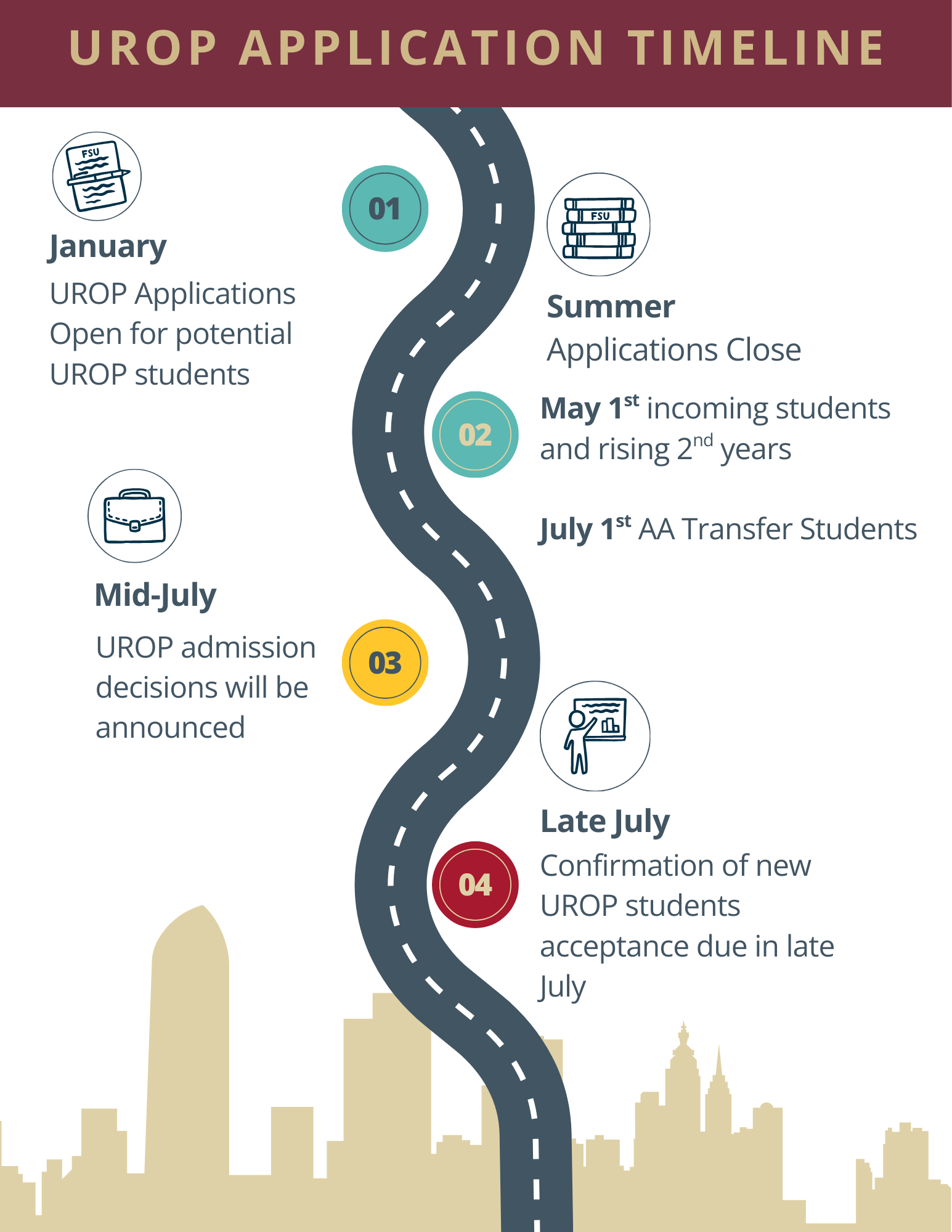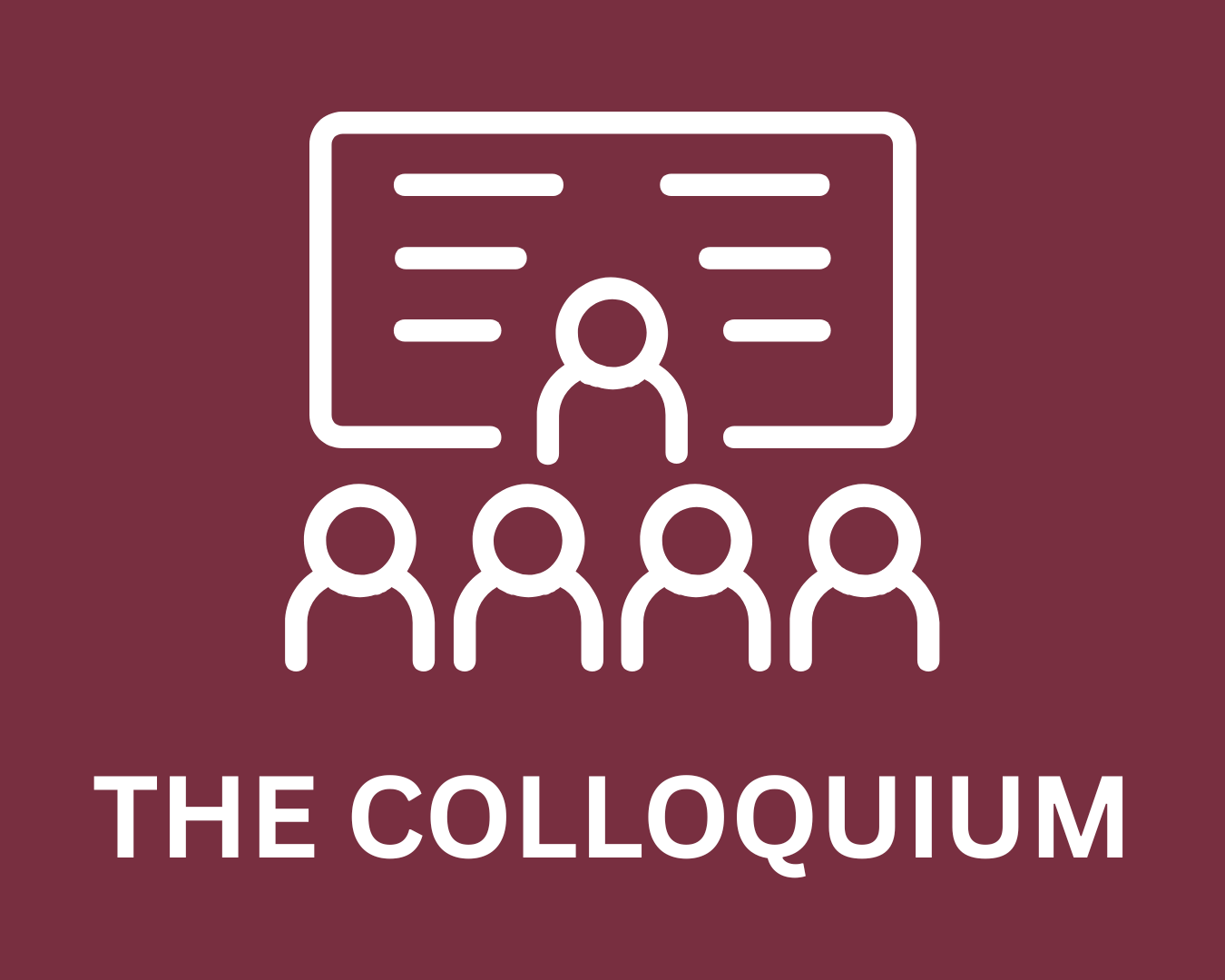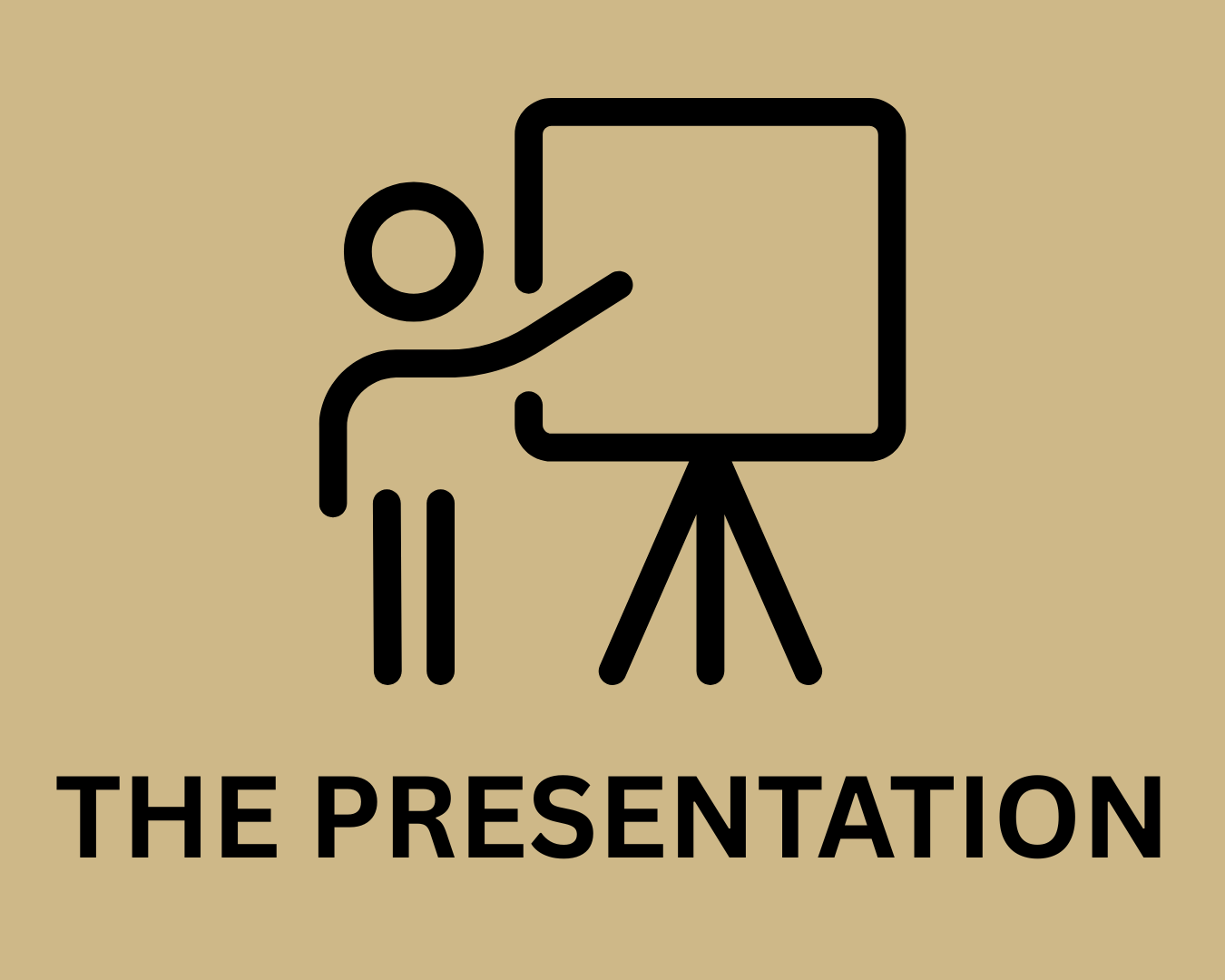The Undergraduate Research Opportunity Program (UROP) provides high-achieving students an engaging community with the flexibility and funding opportunities to explore their full range of interests. You can join a community of hundreds of first and second-year student researchers and UROP alumni, including discipline-specific, and transfer cohorts.
This page is for Undergraduate Students, click here if you are Faculty/Postdoc/Graduate Student/Industry or other Research Mentor for more information.
The UROP student application is open
Deadlines:
Incoming high school students and current first-year students - May 1, 2026
Transfer students with an AA starting their first fall at FSU in 2026 - July 3, 2026

In-person UROP student info sessions
Info sessions will be held in HSF 3008
Wednesday, February 18, at 4 PM Registration Link
Tuesday, March 10, at 3 PM Registration Link
Monday, April 6, at 2 PM Registration Link
Tuesday, April 21, at 4:30 PM Registration Link
Virtual UROP Info Session for Incoming FSU Students ONLY
Tuesday, February 24 at 6 PM
Learn more about UROP
Contact us with any questions at CRE-UROP@fsu.edu
Click the link to watch a 2025 UROP info session recording
Join a community of first and second-year student researchers and UROP alumni, including discipline-specific and transfer cohorts.
Choose from diverse projects across fine arts, engineering, business, and social sciences, or explore research beyond your field.
Join a research team to collect data, analyze, co-author, present at conferences, and make meaningful contributions.
Gain practical research knowledge, a competitive asset for graduate applications and a valuable skillset for employers.
Contact us with any questions at CRE-UROP@fsu.edu
Click the link to watch a UROP info session recording.
THE UROP EXPERIENCE
Students' participation in UROP consists of three, interconnected components, the Colloquium, the Assistantship, and the Presentation. By clicking on each of the individual components below, future UROP participants can learn more about each of the program's modules.
PROGRAM COMPONENTS
- Conduct research 5-10 hours per week assisting a faculty member, postdoctoral scholar, graduate student, or community partner. See last year's UROP projects here
- Meet twice a month with a UROP Student Leader and fellow UROP students; receive personalized guidance about research and campus resources
- Present at the annual Undergraduate Research Symposium.
Impact of UROP
The purpose and outcomes of UROP go beyond providing assistance to faculty or introducing students to research. By engaging students and faculty in the university's main missions - teaching and research - in a way that gives students one-on-one access to faculty and gives faculty access to the next generation of researchers, the entire university culture benefits.
A large body of scholarship suggests that programs like UROP have a strong impact on undergraduate education, retention, GPA, and graduation rates. The University of Michigan has conducted their own studies on the effects of their UROP program (on which our program draws as a model), the results of which can be seen here.
The Center for Undergraduate Research and Academic Engagement and the Division of Undergraduate Studies expect UROP to directly contribute to
- Retention, as outlined in the Michigan study,
- Recruitment, by offering a student experience unique in the state of Florida,
- Reputation, through presentations at conferences and peer perception of the program, and
- Rankings, by investing in our undergraduate education and academic culture.
Please see some of these studies for analyses on the benefits of programs like UROP:



